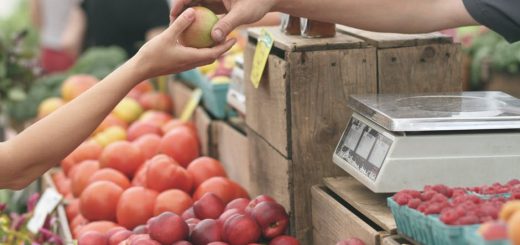Blow on my garden…
Him: Come with me from Lebanon, my bride,
come with me from Lebanon.
Descend from the crest of Amana,
from the top of Senir, the summit of Hermon,
from the lions’ dens
and the mountain haunts of leopards.
You have stolen my heart, my sister, my bride;
you have stolen my heart
with one glance of your eyes,
with one jewel of your necklace.
How delightful is your love, my sister, my bride!
How much more pleasing is your love than wine,
and the fragrance of your perfume
more than any spice!
Your lips drop sweetness as the honeycomb, my bride;
milk and honey are under your tongue.
The fragrance of your garments
is like the fragrance of Lebanon.
You are a garden locked up, my sister, my bride;
you are a spring enclosed, a sealed fountain.
Your plants are an orchard of pomegranates
with choice fruits,
with henna and nard,
nard and saffron,
calamus and cinnamon,
with every kind of incense tree,
with myrrh and aloes
and all the finest spices.
You are a garden fountain,
a well of flowing water
streaming down from Lebanon.Her: Awake, north wind,
and come, south wind!
Blow on my garden,
that its fragrance may spread everywhere.
Let my beloved come into his garden
and taste its choice fruits. Song of Songs 4:8-16
 Things are really hotting up now. There’s the invitation – ‘Come with me’ – and the reason – ‘You’ve stolen my heart’. He’s completely caught up in his desire – the fragrances and tastes of her are overwhelming – wine, spice, milk and honey. And then there is the promise of what is to come – ‘You are a garden locked up, a spring enclosed’. The analogy is an obvious one – a secret garden filled with promise….heady fragrances, sweet delicious tastes, indescribable pleasure – refreshing, exhilarating ecstasy.
Things are really hotting up now. There’s the invitation – ‘Come with me’ – and the reason – ‘You’ve stolen my heart’. He’s completely caught up in his desire – the fragrances and tastes of her are overwhelming – wine, spice, milk and honey. And then there is the promise of what is to come – ‘You are a garden locked up, a spring enclosed’. The analogy is an obvious one – a secret garden filled with promise….heady fragrances, sweet delicious tastes, indescribable pleasure – refreshing, exhilarating ecstasy.
Notice that it is an invitation. A gentle invitation to open up her garden to him. No pressure. No manipulation. No expectation.
She has a choice. She should always feel she has a choice. She wants this too – ‘Let my beloved come into his garden
and taste its choice fruits.’ There’s a sense in which this is his garden, because he belongs to her and she belongs to him. Such is their love. Their commitment. This is a consensual, mutual sharing of pleasure, arising out of their great love for each other.
 Today, lady garden is still used as a euphemism for the vagina. It’s hard to say with a straight face, I know. We grew up with our own particular version of a euphemism for our private parts. That’s just the way it always was. No one calls a vagina a vagina.
Today, lady garden is still used as a euphemism for the vagina. It’s hard to say with a straight face, I know. We grew up with our own particular version of a euphemism for our private parts. That’s just the way it always was. No one calls a vagina a vagina.
But what does that teach us as we are growing up? That this is a part of our body that we can’t talk about without being embarrassed? Does it give this very special place some kind of stigma? A stigma that means that talking about the health and care of this special region of our bodies becomes taboo and awkward.
Which is not a good thing. It can lead to tragedy in some cases. Because sexual health matters. Women put off going for a smear because it’s too embarrassing. Women ignore symptoms and hope they will just go away on their own. Women are afraid to ask questions and voice concerns.
We need to develop a healthy attitude to our vaginas. A respect. We need to open up the conversation – not in a crude, demeaning way. I’m not suggesting that. But in a positive way that owns what we are and what we have as women, as we look after our whole bodies well and treat our whole bodies with the respect and admiration that they deserve.












